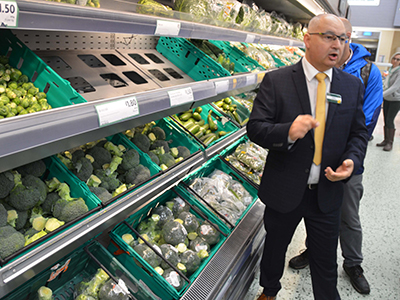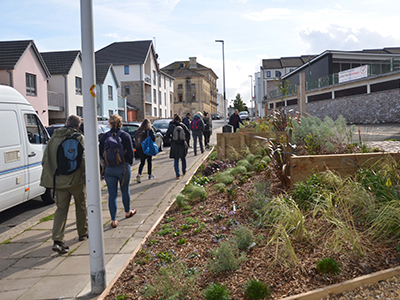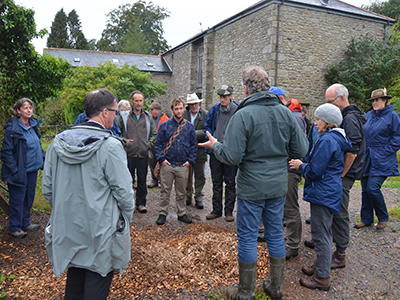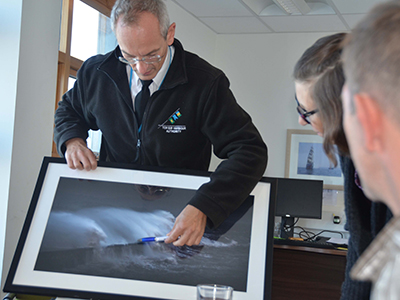Learning Journey for Resilience in South Devon
What would make this place more resilient, who’s making change happen? What might a joined-up climate resilience strategy for South Devon look like? We ran this Learning Journey because we wanted to find out who is doing what on the ground, to listen to what people are saying, and to understand what the main challenges to resilience are and where we will find the green shoots of regeneration.
Seeing systems
A few insights
River Farming, soil and food
“We have created a system where we are now having to choose between food or wildlife. Species in the UK have a particular challenge – it’s harder to adapt on an island when squeezed by human development. We need to look for ways to enable dynamism in the landscape.”
– Ed Parr-Ferris, Devon Wildlife Trust, Conservation Manager


City Energy and mental and physical health
“A key insight was the plethora of great schemes underway in Plymouth, and how there should be a lot of synergies to improve and update what is offered to residents. The issues are all part of the same story; a deeper, harder-to-see problem. It’s inspiring to see all these projects–so little attention is given to this work, no one is hearing about it.”
– Joseph Rose, South Hams District Councillor
Moor Water, upland farming, tourism and biodiversity
“It is hard to maintain hill farming without a subsidy, the average Dartmoor farmer loses £14,000 each year. But farmers are quite resilient and are coping with change.”
– Norman Cowling, Dartmoor Farmers Association


Coast Fishing and public infrastructure
“Four of the landfill sites in Torbay are in flood zones, that means liable to flash floods, and one is in a coastal erosion zone. It is very rare that we only get one type of flooding: It will be a combination of high tide, torrential rainfall and then there is limited drainage capacity as sewage backs up in combined sewers. Most floodwater is contaminated. However, it is very difficult to get people to imagine that low-lying areas of housing may need to be abandoned.”
– Dave Stewart, Service Manager, Engineering, Torbay Council
Learning Journey image: ‘Endless Rhythm’ by Robert Delaunay, 1934 | Tate

We work in and at the intersection of economy, ecology, learning, arts and culture and the gaps in between.
